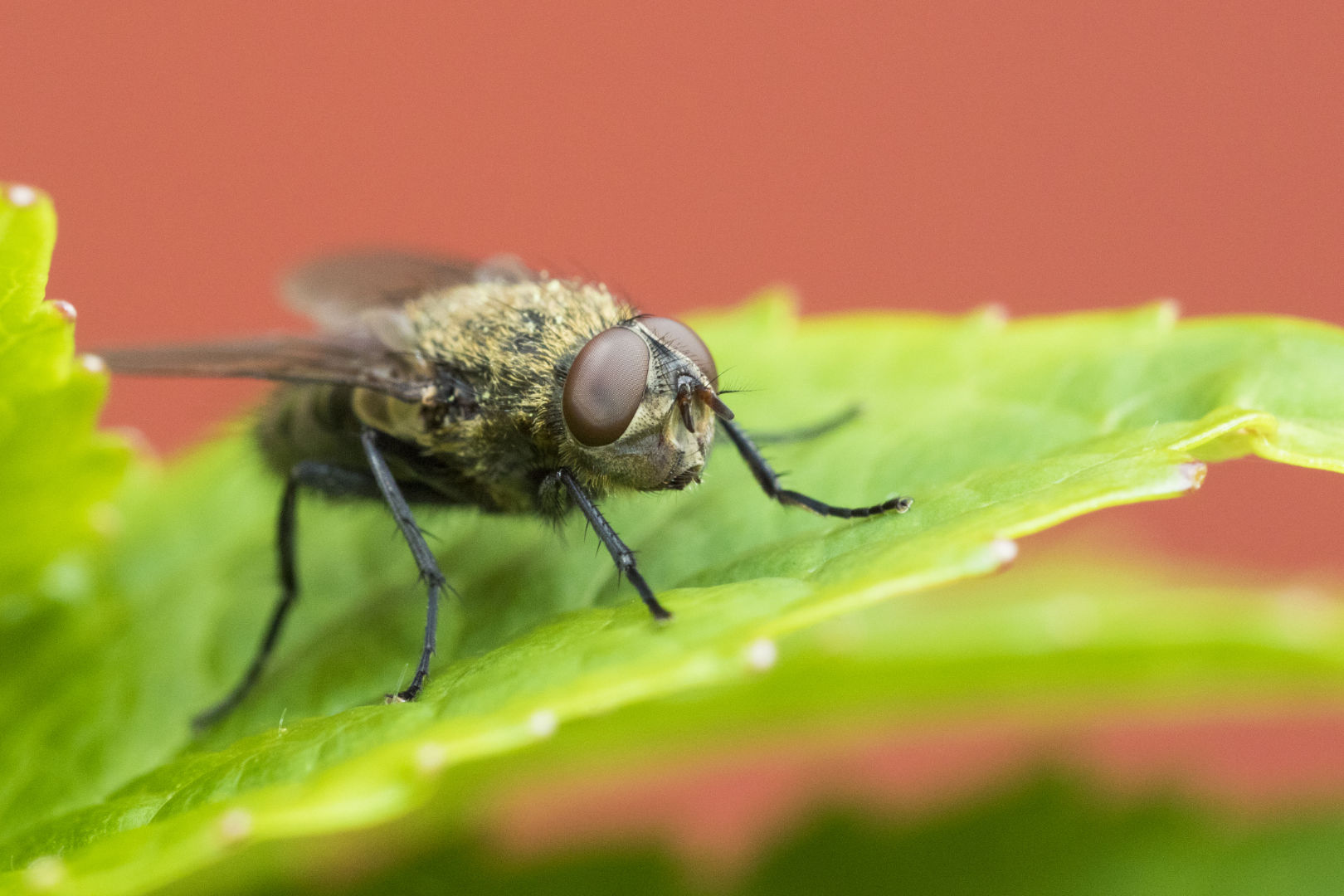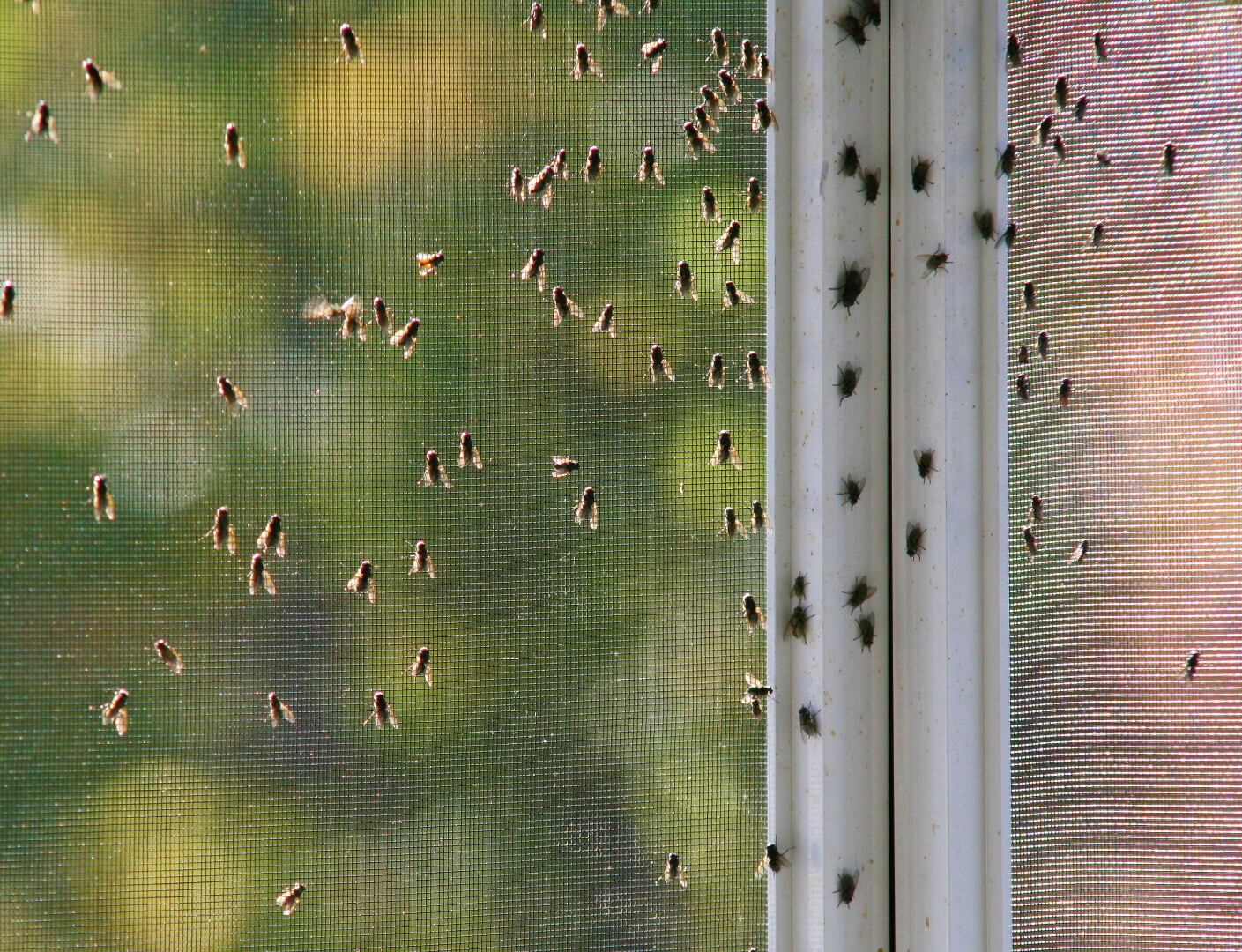How to Get Rid of Flies

If you feel like you're waging (but losing) the war on flies in and around your home, you're not alone. There are more than 16,000 known species of flies in North America alone, all of them annoying.
Flies are more than just an annoyance—they also pose a risk to human health. Flies carry microorganisms that can cause medical problems ranging from diarrhea and bloodstream infections to meningitis. Dozens of pathogens are closely associated with fly infestations, including E.coli, staphylococcus, and salmonella, as are diseases such as hepatitis, cholera, and typhoid fever.
Flies are a common nuisance during the warmer months of the year, with fruits flies, houseflies, and sewer flies being among the most common types of flies that plague New Jersey, Delaware, Pennsylvania, and Maryland homeowners. While particularly bad infestations of flies, especially fruit flies, require professional pest control help and the expertise of a seasoned exterminator, learning how to get rid of flies yourself can be useful in some situations.
First Things First: Where Are the Flies Coming From?
Although flies can breed indoors, most get their start outside. For that reason, it makes sense to find the source of the flies afflicting your home before you formulate a battle plan to defeat them.
Flies are attracted to any type of organic matter, especially if it's in a state of decay or decomposition. This means that flies are naturally drawn to your compost pile outback, any type of animal waste, and any sort of rotting fruit or vegetables.
Eliminate flies' happy spot – the spot where they can lay thousands of eggs - and you will see the fly population reduced dramatically. In fact, with the proper steps outdoors, you will have fewer problems controlling flies indoors. Failing to take outdoor fly control into account will undermine successful efforts to curtail the local fly population inside as well as out.
Some more tips for outdoor fly control:
- Keep it clean. Begin with your trash cans. Make sure that you use a bleach solution to clean out your trash cans regularly, and keep any type of compost pile or compost bin as far away from your home as possible. Cover your compost bin so that flies can't get inside. If you have pets, be mindful of picking up their waste out of the yard because flies love to blow piles of dog and cat feces.
- Know that the enemy of your enemy is your friend. Make your backyard as welcoming as possible to flies' natural predators. Birdhouses and birdbaths attract more birds to your lawn, and birds love eating flies. If you are so inclined, consider attaching a bat house to your roof to attract bats, which are well-known for their capacity to nosh on these six-legged irritants. Depending on a bat's life stage, it can eat up to 4,000 insects in a single night.
- Learn to be a bad host. There are certain things that flies detest, and one of those things is pine cleaner. If you have an outdoor fly infestation, which means sooner or later you're going to have an indoor fly infestation, cleaning your porch, patio and siding with pine cleaner is a big detractor to flies. Before attempting this, be sure to test and a noticeable area of your porch or patio to make sure that you do not damage the wood or other materials that it's made from. repeat the application of pine cleaner every few days until the flies realize that your home is an inhospitable environment for them.
- Try natural fly deterrents. Flies are also not a fan of certain types of essential oils. Create a DIY fly deterrent spray using a few ounces of essential oils to every gallon of water. Scents that flies hate the most include citronella, rosemary, eucalyptus, lemongrass, mint, lavender, and clove. Another option is to put a few drops of essential oils of your choice on strips of old cloth and hang them near doors and windows or other areas where flies tend to find their way inside.
Indoor Fly Control and Prevention

Inside the home there are several measures that you can take to make your home appear less appealing to flies. First, do your best to keep flies out in the first place by keeping doors and windows shut when possible. Inside cover all food keep trash in a tightly sealed can and clear away any food debris after cooking and serving meals. The goal is to give the flies that come into your home nothing to hey deal find appealing about your home.
Keep a flyswatter on hand to deal with occasional flies that find their way into your home. If you notice a particularly large number of flies coming inside, you can try sticky strips of flypaper, which are available for sale at most big box retailers or hardware stores.
Professional Fly Extermination
The rate at which flies reproduce is nothing short of shocking and underscores the need for effective pest control and a timely call to the exterminator. Take the common fruit fly, which is a particularly bothersome pest in New Jersey. The fruit fly gets its name from its attraction to overly ripe fruits and vegetables, which is also where it likes to lay its eggs. A single female fruit fly lays hundreds of eggs in a very, very short span of time. The eggs that she lays turns into little maggots and those maggots turn into grown flies over the course of just a few weeks. This means that a domestic fruit fly infestation can quickly get out of hand if you don't take steps to control it.
While DIY methods of fly extermination are okay in some instances, calling a professional exterminator is usually the most expedient option to help you get rid of these irritating winged critters. Viking Pest Control is ready to buzz on over to your home to help. Our team is trained in the management and extermination of flies and have proven methods to take care of the little buggers once and for all, including the use of treatments and products that send flies packing. Reach out now - we're ready and eager to help you find a solution for your fly problem.
For a free fly control quote call Viking Pest at (800)618-2847 or visit vikingpest.com.











